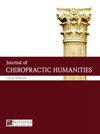Inappropriate Patient Sexual Behaviour Towards Female Chiropractors in South Africa: A Quantitative Analysis
Q3 Health Professions
引用次数: 0
Abstract
Objectives
The purpose of this study was to survey chiropractors’ awareness and use of inappropriate patient sexual behavior (IPSB) protocol guidelines.
Method
This study used a 31-question online survey, distributed during the period of September to November 2022, to all registered female chiropractors in South Africa. The survey focused on how often and how severe IPSB incidents were, as well as practitioners’ knowledge and use of IPSB guidelines.
Results
Of the 508 chiropractors, 24.2% (123) responded. All respondents were aware of IPSB, with 59.8% reporting they had experienced it. More than half (52.2%) had encountered IPSB more than once, with mild cases being the most common, followed by moderate and severe cases. Respondents reported they felt more prepared for mild IPSB than for moderate or severe incidents. Many (40.9%) chose to ignore the behavior and continue treating the patient, while 34.1% gave a verbal warning before continuing care. A majority (95.7%) were concerned about IPSB, and 82.9% thought additional training could help them better handle these situations. While 62.6% knew about the IPSB protocol guidelines, 80.5% had not read them. Nevertheless, 83.3% said they had implemented the guidelines, and 66.7% found them helpful for educating chiropractors about IPSB.
Conclusion
The study found that 59.8% of female chiropractors in South Africa have experienced IPSB. Maintaining professional boundaries is a major concern for this group of chiropractors, and further research and professional guidelines may be necessary to address the impact comprehensively.
病人对女性脊医不适当的性行为在南非:一个定量分析
目的调查脊医对患者不当性行为(IPSB)协议指南的认知和使用情况。该研究采用31个问题的在线调查,于2022年9月至11月期间向南非所有注册的女性脊医分发。调查的重点是IPSB事件发生的频率和严重程度,以及从业人员对IPSB指南的了解和使用情况。结果508名脊医中,有123名(24.2%)作出回应。所有受访者都知道IPSB, 59.8%的受访者表示他们经历过IPSB。超过一半(52.2%)的患者不止一次遇到IPSB,其中以轻中度病例最多,其次是中度和重度病例。受访者报告说,他们对轻度IPSB比中度或严重事件准备得更充分。许多人(40.9%)选择忽视这种行为并继续治疗患者,而34.1%的人在继续治疗前给予口头警告。大多数人(95.7%)担心IPSB, 82.9%的人认为额外的培训可以帮助他们更好地处理这些情况。62.6%的人知道IPSB协议指南,80.5%的人没有读过。尽管如此,83.3%的受访者表示他们已经实施了该指南,66.7%的受访者认为该指南有助于向脊医培训IPSB。结论研究发现,南非女性脊医中有59.8%的人经历过IPSB。保持专业界限是这群脊医的主要关注点,进一步的研究和专业指南可能需要全面解决这种影响。
本文章由计算机程序翻译,如有差异,请以英文原文为准。
求助全文
约1分钟内获得全文
求助全文
来源期刊

Journal of Chiropractic Humanities
Medicine-Complementary and Alternative Medicine
CiteScore
1.70
自引率
0.00%
发文量
7
 求助内容:
求助内容: 应助结果提醒方式:
应助结果提醒方式:


